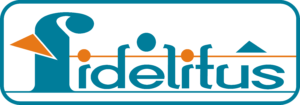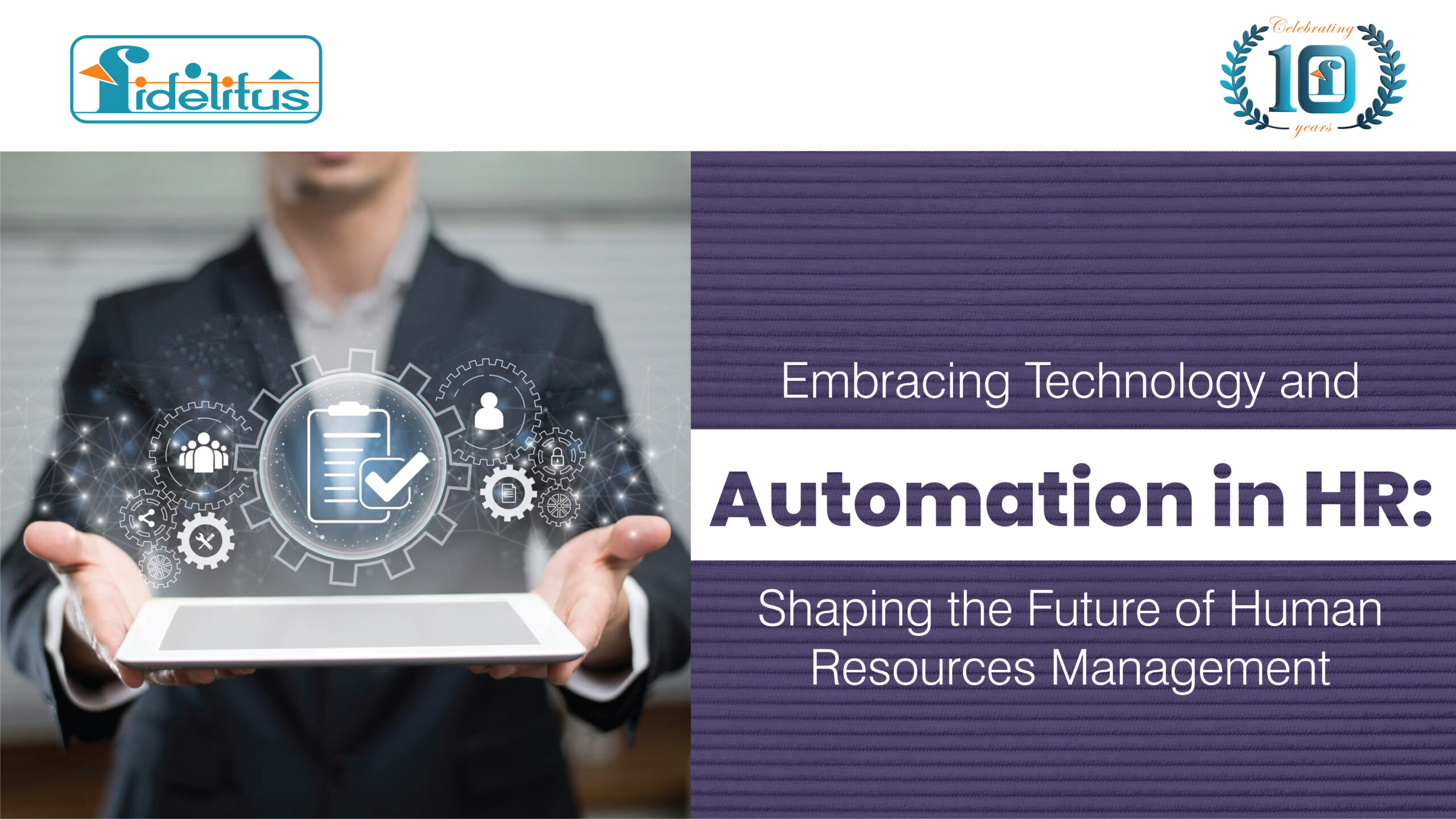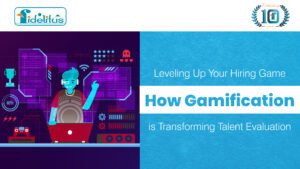Introduction:
In today’s rapidly evolving business landscape, Human Resources (HR) is undergoing a profound transformation. The integration of technology and automation in HR management practices is becoming increasingly crucial for organizations to stay competitive. This article explores the future of HR and provides an in-depth exploration of key areas where technology adoption and automation are revolutionizing HR practices. From streamlining processes to data-driven decision-making and enhancing the employee experience, we will delve into each aspect, providing valuable insights and specific tools that are shaping the future of HR.
Streamlining HR Processes with Technology:
The digitization of HR processes and the adoption of cloud-based HR management systems have revolutionized HR operations. These advancements offer a range of benefits, including improved efficiency, streamlined workflows, and enhanced data analytics. Let’s explore some popular HR software tools that are making waves in modern HR practices:
- Zoho People: Zoho People is a comprehensive HR software that offers features for employee management, attendance tracking, leave management, performance appraisal, and more. It provides localized support for businesses of all sizes.
- BambooHR: BambooHR is a user-friendly HR platform that includes features such as employee database management, time-off tracking, performance management, and applicant tracking. It is designed to streamline HR processes and is suitable for small to mid-sized companies.
- greytHR: greytHR is an HR and payroll management software. It offers modules for employee information management, attendance tracking, leave and time-off management, payroll processing, and compliance management.
- sumHR: sumHR is a cloud-based HR software that provides modules for employee management, leave management, attendance tracking, payroll processing, and performance management. It offers an intuitive interface and customizable workflows.
- PeopleStrong Alt: PeopleStrong Alt is a comprehensive HR software suite that covers various HR processes, including recruitment, employee lifecycle management, performance management, payroll processing, and compliance management.
These tools not only streamline HR processes but also address the specific requirements and regulations, enabling businesses to navigate the complexities of HR management more effectively.
AI and Machine Learning: Revolutionizing HR Practices:
The integration of Artificial Intelligence (AI) and machine learning technologies has brought about significant transformations in HR practices. Let’s explore key applications:
- Automated Resume Screening: AI-powered algorithms streamline the resume screening process. These tools analyze resumes, match candidate qualifications with job requirements, and provide HR professionals with a shortlist of the most suitable candidates. This automation saves time, ensures a more objective selection process, and improves overall recruitment efficiency.
- Chatbot-based Employee Support: Chatbot technology has become increasingly popular in providing real-time assistance to employees. Tools offer chatbot-based HR support, answering employee queries, providing guidance through self-service portals, and delivering personalized assistance. This technology-driven approach enhances employee satisfaction, reduces HR workload, and enables employees to access HR support at any time.
- Predictive Analytics for Talent Management: Machine learning algorithms enable HR professionals to analyze vast amounts of employee data, unlocking valuable insights for talent management. Tools leverage predictive analytics to identify attrition risks, recognize high-potential employees, and personalize learning and development programs. By leveraging these tools, HR departments can proactively manage talent, reduce turnover, and drive employee growth and retention.
Leveraging Data Analytics for Informed Decision Making:
Data analytics has become an indispensable tool for HR professionals to make
informed decisions. Let’s explore key areas of application:
- Workforce Planning: HR analytics tools assist HR professionals in forecasting future talent needs based on historical data. These tools enable organizations to identify skill gaps, plan succession, and implement proactive recruitment strategies, ensuring they have the right talent at the right time to support business objectives.
- Employee Engagement: Analyzing employee feedback, sentiment analysis, and engagement survey data helps HR professionals gain insights into employee needs and engagement levels. By understanding employee sentiment, HR departments can implement targeted initiatives to improve engagement, satisfaction, and overall employee experience.
- Performance Management: HR analytics provide valuable insights into employee performance, enabling fair and objective evaluations. Performance management tools facilitate ongoing feedback, goal tracking, and 360-degree feedback processes. By leveraging data-driven metrics, organizations can foster a culture of continuous improvement, identify top performers, and provide tailored support for employee development.
- Diversity and Inclusion: Promoting diversity and inclusion is a key focus for
organizations. HR analytics tools help monitor diversity metrics, identify areas for improvement, and design effective strategies to create inclusive work environments. These tools provide insights that enable HR professionals to track progress, ensure equal opportunities, and build diverse and inclusive teams.
Enhancing the Employee Experience:
Technology plays a significant role in enhancing the employee experience, enabling seamless communication and empowering employees. Let’s explore key aspects:
- HR Portals and Self-Service Platforms: Employee self-management platforms, integrated HR portals, and tools centralize HR resources and empower employees to access information, request leave, view pay stubs, and update personal details effortlessly. These platforms reduce administrative burdens, enhance transparency, and enable employees to take ownership of their HR-related tasks.
- Mobile Apps: Mobile apps bring HR services and information to employees’ fingertips, allowing them to perform essential HR functions conveniently. Features like mobile-based attendance tracking, leave management, and access to benefits information improve efficiency and cater to the needs of employees on the go.
Automation of HR Processes for Efficiency:
Automating repetitive HR tasks brings significant time and cost savings, enabling HR professionals to focus on strategic initiatives. Let’s explore key areas for automation:
- Payroll Processing: Automated payroll processing tools streamline payroll calculations, tax deductions, and direct deposit transactions. This automation reduces errors, ensures timely and accurate payments, and frees up HR professionals’ time for more value-added activities.
- Leave Management: Automated leave management systems simplify leave tracking, approval processes, and employee self-service. These tools minimize manual intervention, eliminate paperwork, and enhance accuracy and compliance.
- Performance Evaluations: Automated performance evaluation systems streamline the performance management process. These tools enable ongoing feedback, goal tracking, and 360-degree feedback, ensuring a fair and consistent evaluation process while providing valuable insights for employee development.
Upskilling HR Professionals for the Future:
As technology continues to evolve, upskilling HR professionals is crucial to adapt to the changing landscape. Let’s explore key areas of upskilling:
- Data Analytics: HR professionals should equip themselves with data analytics skills to effectively leverage HR analytics tools and drive data-driven decision making.
- Technology Adoption: Staying updated with new HR technologies is essential for HR professionals. HR tech conferences, HR Technology Magazine, and HR Open Source provide valuable insights into emerging technologies, trends, and best practices.
- Change Management: Change management skills are vital for HR professionals to guide employees through digital transformation initiatives. Certifications and resources from organizations offer valuable guidance and expertise in change management practices.
- Ethical and Legal Considerations: While embracing technology and automation, organizations must prioritize ethical and legal aspects to maintain trust and compliance. Let’s explore key considerations:
- Data Privacy and Security: HR departments must ensure robust data privacy and security measures to protect employee data.
- Maintaining a Human-centric Approach: Despite the increasing reliance on technology, HR professionals should maintain a human-centric approach.

Embracing technology and automation in HR management is essential for organizations to thrive in the future. By streamlining processes, leveraging AI and machine learning, making data-driven decisions, enhancing the employee.










